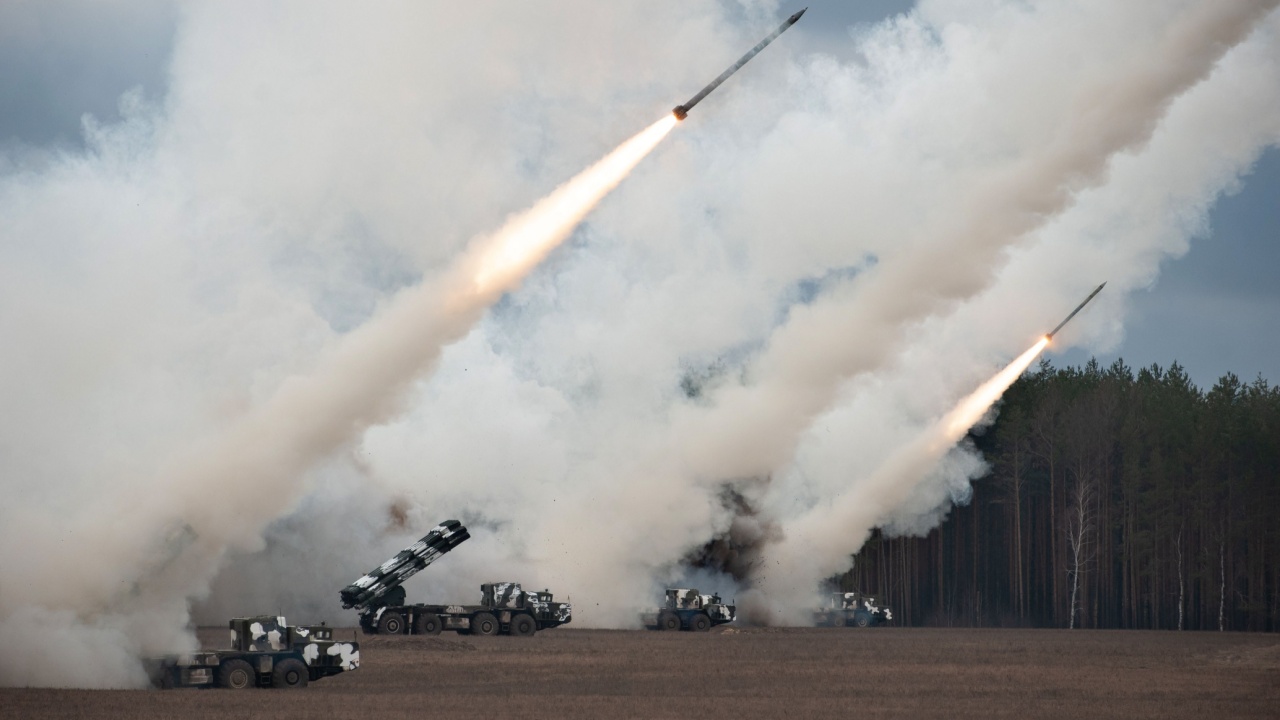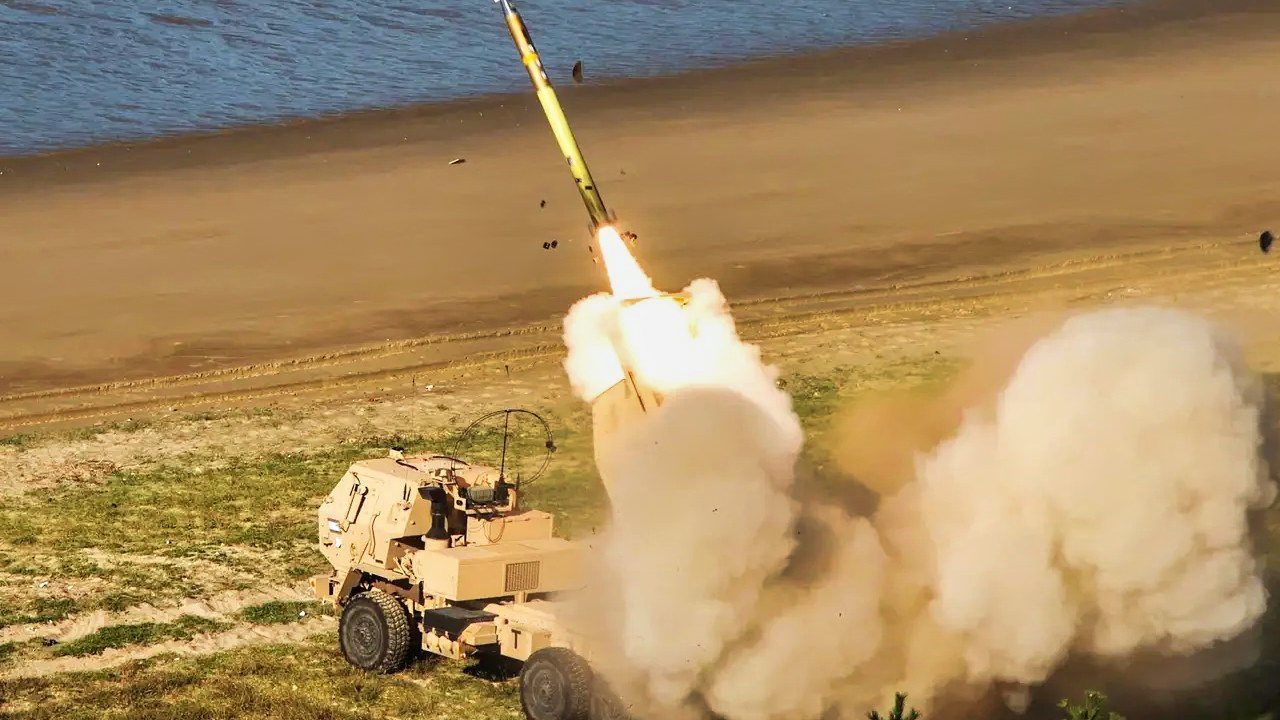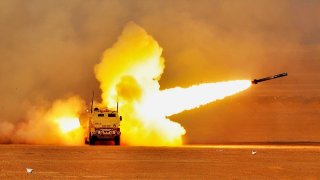Joe Biden's ATACMS Missile Call: Straight Out of Games of Thrones?
President Joe Biden's decision to greenlight ATACMS missile strikes on Russian soil signals a final, provocative move in his presidency, paralleling a dramatic last act akin to Olenna Tyrell’s parting blow in Game of Thrones.
What You Need to Know: President Joe Biden's decision to greenlight ATACMS missile strikes on Russian soil signals a final, provocative move in his presidency, paralleling a dramatic last act akin to Olenna Tyrell’s parting blow in Game of Thrones.

-This escalation complicates peace prospects and poses risks of further retaliation, including Russia's reported launch of an ICBM. With NATO unprepared for the potential casualties of full-scale war, Biden’s legacy may be defined by leaving U.S.-Russia relations in disarray.
-Critics argue this decision hinders the incoming Trump administration’s ability to broker peace while Ukraine remains on the defensive, facing waning morale and public support for the conflict.
Biden’s ATACMS Gamble: A Final Blow in the Russia-Ukraine Conflict
At the End of the Road: How Biden Chooses to end his tenure as President in the Russia/Ukraine Conflict. “Tell Cersei, I want her to know that it was me,” These are the last words spoken by Olena Tyrell, the character from the HBO hit TV series Game of Thrones.
This character had seen her house, her progeny, and her entire future snuffed out, and in one last stab from the grave she reveals to her arch rivals that it was her in fact that killed their son. I like to think that Joseph R. Biden, First of his name, slayer of corn pop, eater of ice cream, and 46th president of the United States, has a similar feeling as he looks over his legacy.
He has overseen not just the route of his presidential career, but also the complete sweep of his party from all major branches of the legislature. Biden is likely thinking of what kind of legacy he will leave behind. In the last gasp of his presidency, the legacy he seems to want to leave behind is that of open war with Russia.
On Monday, November 18th, Biden authorized the use of ATACMS missiles on Russian soil. The United States was not the only country to do this, Britain and France both have allowed their missiles to be fired directly by Ukraine into Russian territory. This means that NATO-made and guided missiles could be used to hit Russian targets within Russia, blurring the lines of America’s direct involvement in Ukraine. Some have put it forward that the Biden administration is trying to give Ukraine the best possible advantage before the new Trump administration starts cutting off aid to an increasingly hopeless conflict. While
Ukraine's much-vaunted Kursk offensive has turned sour and the Ukrainian army is facing a slow grinding down of their salient in the Sudzha region. Ukraine continues to see endemic manpower shortages.
The response that the Russians have given to this most recent provocation by the American Government has been the reported first launching of an intercontinental ballistic missile (ICBM) in war. This was after Russia claimed that the ATACMS and Storm Shadow missiles had failed Russian defenses. Zellensky has said that in doing this Russia has led to a, “second step toward escalation”. Seemingly in Ukraine's view the use of ATACMs is fair retaliation for Russia’s use of North Korean forces, but ICBMS are not a proportional response to the use of ATACMS.
With all this escalation it bears reminding that NATO countries are endemically not prepared for a full-scale war with Russia. The United States lost 2,324 soldiers in Afghanistan in a nearly twenty-year-long conflict. The Ukrainians by conservative estimates have lost between sixty to eighty thousand in two years of intense fighting.
The financial and morale strain of those twenty years of low-intensity fighting was enough to reawaken fears in some circles of the return of “Vietnam syndrome” here in the United States. How exactly would the American public react to sixty thousand casualties within two years? We are the most ready country for a war with Russia and even we are likely not prepared to take such losses and still function at the same elite status.
Polling coming out of our closest European partner, the UK, shows a bleak picture of a country that is not sold on a war with Russia, and whose young men would prefer to stay home.
We do not have to ask what the Russian response to a war is, either through a desire for the high salaries of a soldier's pay or patriotic fervor, Russians and Ukrainians are both showing the West that it takes more than a professional fighting force to fight a war. More than anything this war shows us that the old realities of war remain the same. Men, material, and money are the three M’s that still determine whether a country will succeed or fail.

With all this in mind will this most recent greenlighting of ATACMS missiles change the overall balance of the war? It is unlikely that it will.
Ukraine remains on the back foot and all this most recent headlining decision has done is make it harder for the incoming Trump administration to settle a peace. This feeling of pessimism is not relegated to the West but has even seeped into Ukraine where, for the first time since the war began, a majority desire quick peace talks to end the war with Russia.
There are some thematic similarities between Biden’s seeming desire to leave the Russia-U.S. relationship in an irreparable mess and Olena Tyrell's desire to have the last word before death. Neither tried for any kind of last-minute reconciliation, no one previous attempt to mend the rifts that tore apart a world, they chose to add one last bit of venom before shuffling off this mortal coil.
In Biden's case, he is likely to live on to see the fallout from his tenure as commander in chief. One could say that Biden has come to the end of his presidency with the desire that his opponent, his party, and his nation remember “It was me!”
About the Author:
Matthew Bryant graduated with a Bachelor's in Global Affairs from George Mason University. He completed his Masters at the Higher School of Economics in Saint Petersburg. He is an enjoyer of Russian culture and has an interest in writing about foreign affairs from a realist perspective. His work has been published in The National Interest, Law and Liberty, and the Realist Review. He can be followed on X @realmofmatt.
Image Credit: Creative Commons and/or Shutterstock.


